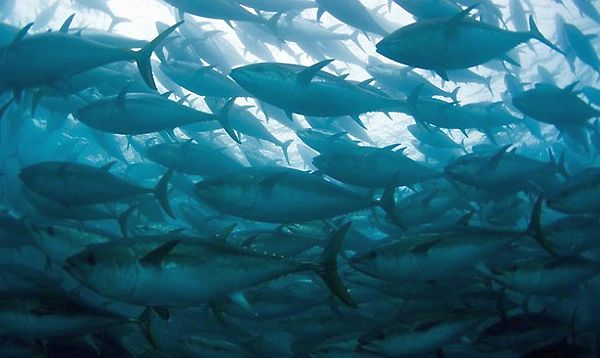Update: On October 29th, the "National Commission of Aquaculture and Fisheries" adopted a measure to reduce catch limits of bluefin tuna in the Eastern Pacific Ocean by 45 percent during 2015 and 2016. The proposal was presented during the 87th meeting of the "Inter-American Tropical Tuna Commission" by Mexico, the US, and Japan, and unanimously adopted for the sustainable management of bluefin tuna stocks.
Tokyo, Japan - Japan's Fisheries Agency may ask their country's importers to refrain from buying Pacific bluefin tuna from Mexico in an effort to nudge that country into taking steps against overfishing.
The request, although non-binding, would represent a rare move for Japan in seeking to effectively manage the finite resource. It comes just in time for the multinational meeting of a regional tuna commission, which is scheduled in California today to discuss bluefin tuna fishing in the eastern Pacific.
At the meeting of the Inter-American Tropical Tuna Commission, participating countries are set to discuss Tokyo’s proposal to cut catch limits of juvenile bluefin tuna (weighing less than 66 pounds) in the eastern Pacific by half.
It remains unclear whether the proposal will be adopted, as Mexico is said to be reluctant. Juvenile bluefin tuna thrive in large quantities in the waters off Mexico.
Japan, the world’s largest consumer of tuna, may see fewer imports of bluefin tuna as a result of the request, but hopes to win concessions from Mexico by taking a tough stance toward the country, according to sources.
Mexico caught roughly 5,280 tons of juvenile bluefin tuna in the Pacific Ocean in 2012, roughly half the total catch of that fish in the country. Most was shipped to Japan, where demand for Mexican-caught tuna is strong because of its reasonable price.
In September, at an international conference on control of bluefin tuna in the northern Pacific, Japan and other participating countries such as South Korea, broadly agreed to cut catches of juvenile Pacific bluefin tuna in half next year
Original Story


